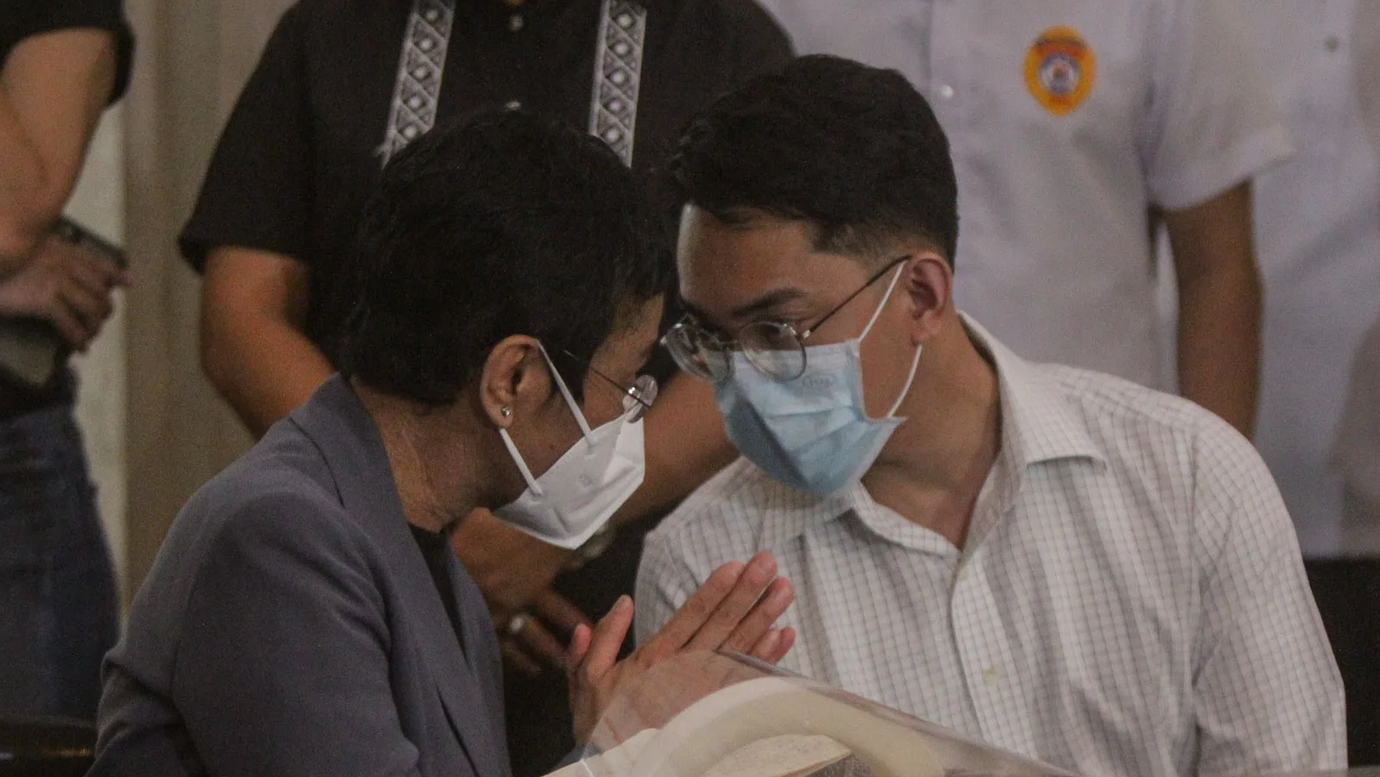On July 8, the Philippines Court of Appeals upheld a lower court’s conviction on “cyber libel” against journalist and Nobel laureate Maria Ressa and former researcher Reynaldo Santos Jr. The order has attracted significant attention from press unions and press freedom advocates because of the far-reaching consequences that it holds for journalism.
As per the new ruling, passed by a three-judge bench, the prison sentence was amended from a maximum of six years to six years, eight months and twenty days. Moreover, the bench also denied the defense team’s argument against the shelf-life of the case and held that the cyber libel law allows for prosecution of up to 15 years since the act was committed.
Ressa, founder and CEO of the online news platform Rappler, and Santos, who worked with Rappler as a researcher and reporter, were prosecuted and convicted under a controversial cyber-libel case by the Manila Regional Trial Court, in June 2020.
At the time, the two were jointly fined PHP 400,000 (around USD 7,000) and given a sentence of a minimum of six months and one day and a maximum of six years in prison. The case was the second cyber-libel conviction under the controversial Cybercrime Prevention Act of 2012.
The case against Rappler was based on a 2012 investigative piece by Santos published on Rappler about multi-millionaire Wilfredo Keng’s alleged connection with drug cartels in Manila and of Keng allegedly bribing a Supreme Court judge with an expensive car. The article was later amended in February 2014 to correct a typographical error.
Keng initially filed a complaint against Santos and Rappler in 2017 under ordinary libel laws. The complaint was initially rejected because it was well beyond the established one year prescription period for a libel prosecution.
This was later amended by the Department of Justice (DOJ) under the Rodrigo Duterte administration, which transferred the case under the 2012 cybercrimes law, which was passed barely months after the piece was published.
The 2012 law did not have any explicit prescription period for prosecution but the DOJ argued that since it was a special law with a maximum prison sentence of six years or more, ordinary prescription periods need not apply. The DOJ further argued that the prescription period could extend anywhere between six to 12 years which was strongly contested by Rappler.
Furthermore, to make the act prosecutable under the law that was passed after the piece was initially published, the DOJ also argued that the 2014 correction of the piece counts as a republication, and hence is a new offense committed after the law came into effect. These arguments were later accepted by both the Manila court and the appeals court.
The appeals court went a step further and argued that since cybercrimes laws imposes afflictive penalties, it allows for the prescription period to extend up to 15 years for a cyber-libel prosecution.
The law has been a matter of contention for journalists and news platforms alike. Rappler, along with rights advocates, has for long contested the constitutional validity of the law, especially with how it elevates cyber-libel as akin to a special crime when compared to ordinary libel.
Ted Te of the Free Legal Assistance Group and former Supreme Court spokesperson, who is representing Rappler, has repeatedly argued that a previous Supreme Court decision held that cyber-libel cannot be held as a new or special crime and hence should be treated at par with ordinary libel. This argument was repeatedly overlooked by the DOJ and the courts.
The National Union of Journalists of the Philippines (NUJP) has raised alarm in their statement, arguing that the latest ruling is part of the continued attack on the press in recent months. “We are not taking all these sitting down,” said NUJP. “As we always say, an attack on one is an attack on all.”
While cyber-libel is treated as a bailable offense, Ressa and Santos can avoid serving jail as they appeal against the latest ruling in the Supreme Court. In their statement, Rappler argued that the ruling “weakens the ability of journalists to hold power to account.”
Last month, the country’s securities regulation and company registration body, Securities and Exchange Commission (SEC) issued an order to shut down Rappler.
With inputs from Rappler and Bulatlat





